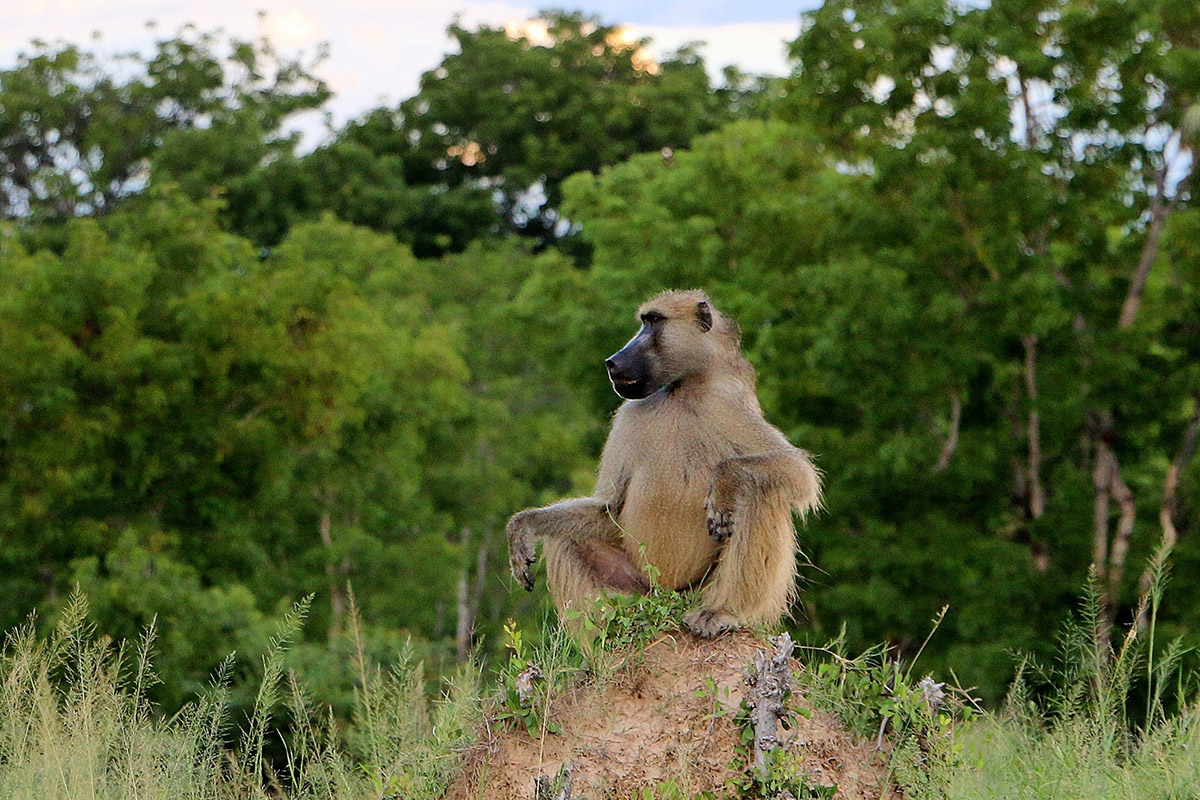Dealing with Stress: What We Can Learn from Wildlife
For many species in nature, life-threatening stress is a daily occurrence. On Ngamo plains, close to Tasimba’s home safari camp in Zimbabwe, animals that roam there are either predator or prey. If you’re an impala, a wildebeest, a zebra, or a buffalo, you most certainly are on the menu for predators like the resident pride of lions. The only way to survive is to stay alert and seek security by keeping in close contact with your social family.
But, as a prey animal, you also know that you have to look after yourself. You can’t spend the whole time in fear of whether there’s a ravenous lion hiding within a thicket or two cheetah brothers scanning for a meal in the shade of a termite mound. Those are threats that are beyond your control. So instead, you stay calm and stay aware and eat properly to keep your strength up so that you can respond when there is a real threat.
You also learn to rely on others to alert you to danger. In the African wilderness, it may be the warning bark of a baboon, the rasping cough of an impala ram, the chattering of birds or the silent sentinels, giraffes, all looking in the same direction. When you are prey, on their alarm you are ready to react instantly to what you can control: the safe keeping of you and your family. When an alarm sounds, ‘he who hesitates is lost’: you run!

The Human Animal
There are many parallels for mankind. While we may not have the daily stress of being hunted by a predator (unless it is a coronavirus), some of our stress is very real. Rather than worry over everything, we need to learn how to consciously face up to and deal with only what is manageable.
Our greatest challenge is to harness ‘good’ stress to focus our energy and efforts on those things that we can control – and not become paralyzed by fear of things beyond our control. For many, this is easier said than done.
Minimizing stress
Particularly in these uncertain times, here are some ways you can try to minimize the stress that can come from worries and burdens you cannot carry alone:
- Focus on the positive. There are many good things happening all around you!
- Engage with others. Keep communication lines open. Be supportive, encouraging, available;
- Make sure you eat healthy, exercise regularly and get your sleep;
- When you’re feeling really stressed, do what basketball players do at the free-throw line: take a few deep breaths. You’ll be amazed how that calms you down;
- If there’s absolutely nothing you can do that will prevent something bad from happening, don’t allow yourself to be stressed about it now. Strictly follow precautionary measures; develop a new routine and be ready to adapt to change that is inevitable;
- Be strategic. Rather than ‘wait for things to change’ think about the changes you will need to make to be productive going forward. For example, think what can you do now to better prepare for a post-pandemic world.
- Lions, baboons and other species groom each other to strengthen social bonds. ‘Groom’ those you care about by reaching out with reassuring words and regular contact to help them reduce their stress. Sometimes you just being there to listen is a huge pick-me-up for others;
- Clean the slate. Clear your head. Assess and prioritize what is really important to you and just focus on that;
- Stay informed. And when the news is mostly depressing (like right now), cut back to one news source a day that you trust and, even then, select the news items that matter most to you. You don’t need to hear the same things over and over again, or to follow the daily ‘score’.
We humans think we’re so evolved but, in reality, we have much to learn from wildlife and nature. In Africa, we learn the Wisdom of Nature and dealing with stress is one of nature’s greatest lessons.
Now is a great time to learn how to manage ours better.
For a good read on stress, related diseases and coping check out “Why Zebras Don’t Get Ulcers” by Robert Sapolsky.
Ain’t no sense worryin’ about the things you got control over, ’cause if you got control over ’em, ain’t no sense worryin’. And ain’t no sense worryin’ about the things you don’t got control over, ’cause if you don’t got control over ’em, ain’t no sense worryin’.” – Mickey Rivers, Baseball player 1970 – 84
Tasimba. Immersed in the African wilderness for 7 days.
Leadership. Naturally. Why not join us?
Contact us about our next safari. We’d love to have you join us!

